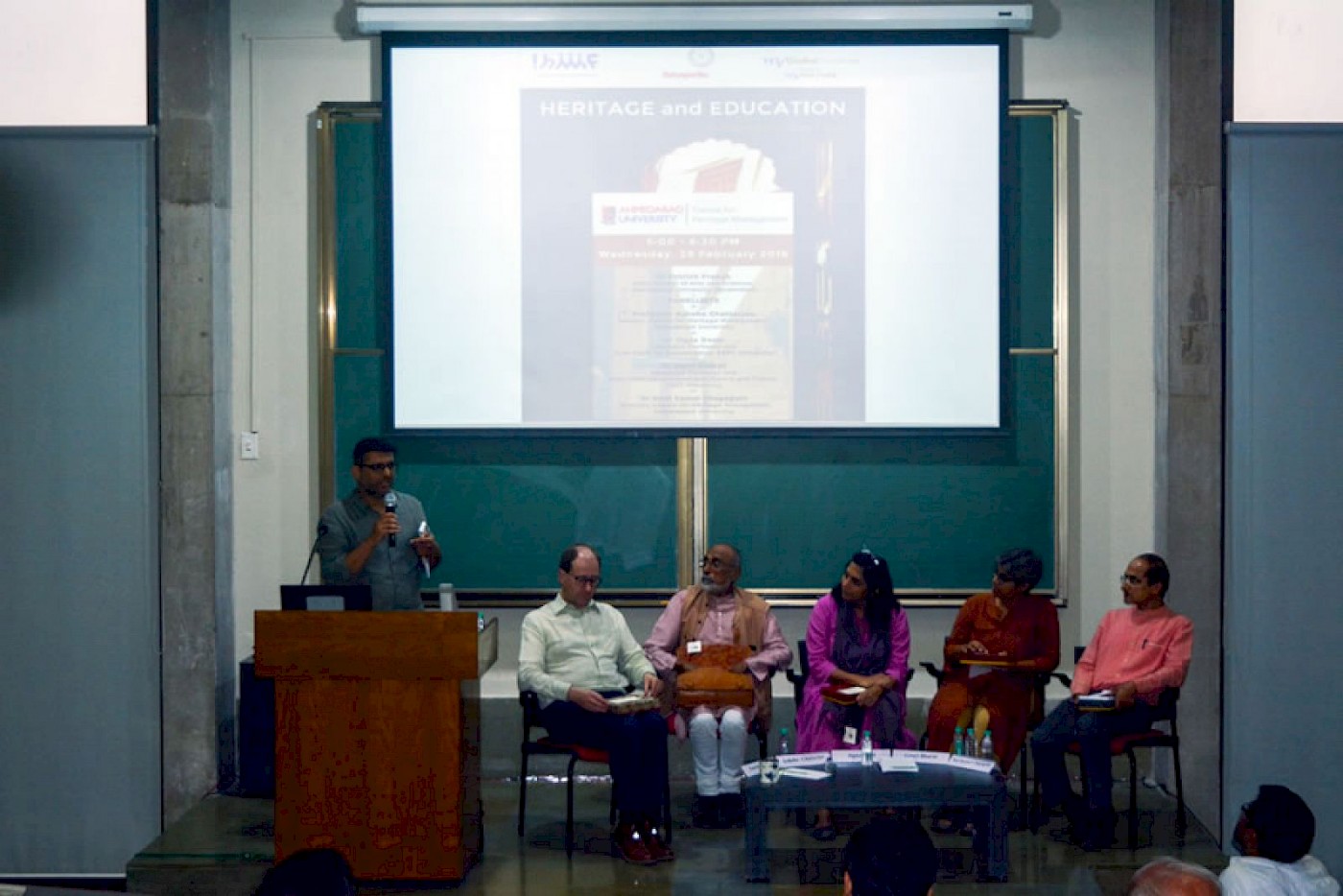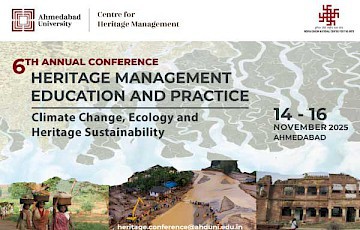Baithak: A Panel Discussion on Heritage and Education

Ahmedabad University, Centre for Heritage Management organised a panel discussion on ‘Heritage and Education’ at Ahmedabad University on Wednesday, 28 February 2018. The event was organized as part of the Baithak series in the month-long India Heritage Walk Festival, organised by Sahapedia with support from the Yes Culture. The session was moderated by Dr Patrick French, the Dean of the School of Arts and Sciences, Ahmedabad University. The panellists included Professor Ashoke Chatterjee, Advisor to the Centre for Heritage Management, Dr Jigna Desai, Area Chair for Conservation at CEPT University, Dr Gauri Bharat, Area Chair for History and Theory of Architecture at CEPT University, and Dr Neel Kamal Chapagain, Director of Centre for Heritage Management, Ahmedabad University.
The session began with an introductory remarks by Dr. French, followed by a presentation on ‘Heritage as Educational Resources and Education for Heritage Management’ by Dr. Chapagain – in which he provided an overview of heritage discourses and the role of education, and concluded the presentation with four key questions that academic institutions engaged in heritage education must consider:
- How do we pursue Heritage as a subject of inquiry?
- How do we analyse the issues in Heritage Management as a field of practice?
- How do we approach managing heritage resources keeping in mind the social and economic needs of the time?
- What should be the framework or pedagogy in providing education trying to address the above concerns?
In his introductory remarks, giving an example of Craft Museum in Kolkata, Professor Ashoke Chatterjee emphasized the point that people are the major stakeholders of the museum. He highlighted the fact that there is no proper policy for museums in the country and the State can play a better role in taking care of its heritage and promoting heritage education. In this direction, he has highlighted the role of educational practices in strengthening and empowering the heritage resources of the country. He also added that education should be inclusive of something we value and should protect.
Dr Jigna Desai shared that for future generations, awareness of historical evidence is important. Heritage is clearly divided into time periods that we call living heritage now. Jigna emphasised the values of Heritage which are co-produced with its context, meanings, spaces and design.’ She also mentioned that there is a need for system and design thinking in this sector, just as other disciplines have started imbibing it.
Dr Gauri Bharat shared her concerns over methods of teaching history and heritage in the classrooms. Talking about her initiative of making her architecture students teach history to the school children, she emphasised on the need of children and citizens, in general, being able to create a connection with their surroundings. ‘The history and heritage is important to understand the continuity and connectedness of self. According to her, learning history makes a person liberal, diverse and enriching.’
Dr French, the moderator, invited the audience to participate in the discussion which yielded important questions and concerns, on which the panellists shared their views and experience. The discussion revolved around the issues of ‘teaching history effectively and connecting with the environment’, ‘the future of today’s heritage’, ‘concerns about exploitation of heritage resources’, ‘issues of inclusivity and plurality’, ‘ the status of traditional knowledge bearers’, and so on. The panellists concurred on the need of having multi-pronged approach to ‘education for heritage sector’ including learning from the traditional artisans and craftspeople while also equipping them with newer skills needed to ensure the continuity of crafts, the integration of the holistic idea of heritage (not just tangible and monuments but also intangible and knowledge-based practices) into the overall heritage education, and Ahmedabad University, through its Centre for Heritage Management, has positioned itself uniquely to explore these themes, and offers a Masters Degree Programme on Heritage Management as well as occasional capacity building programmes for various stakeholders in the broader domain of heritage management.



